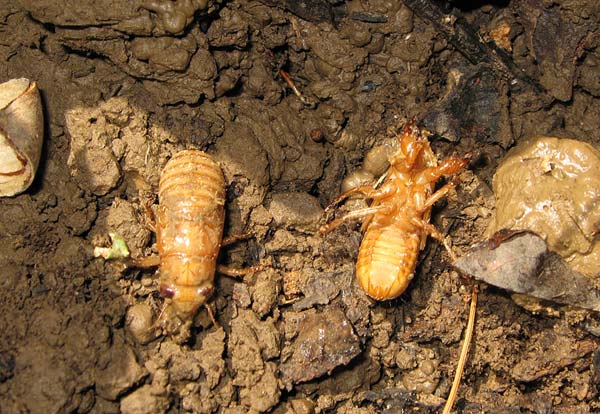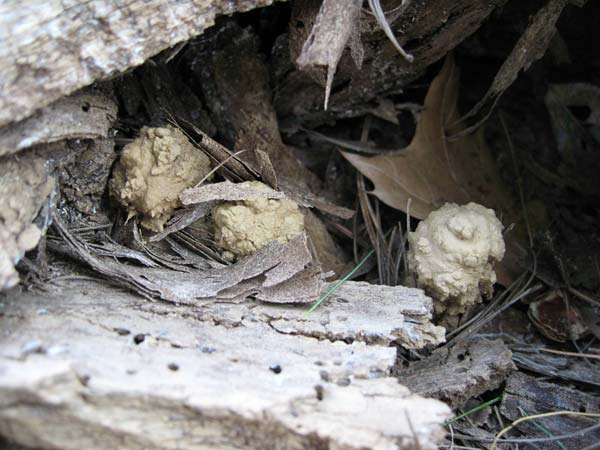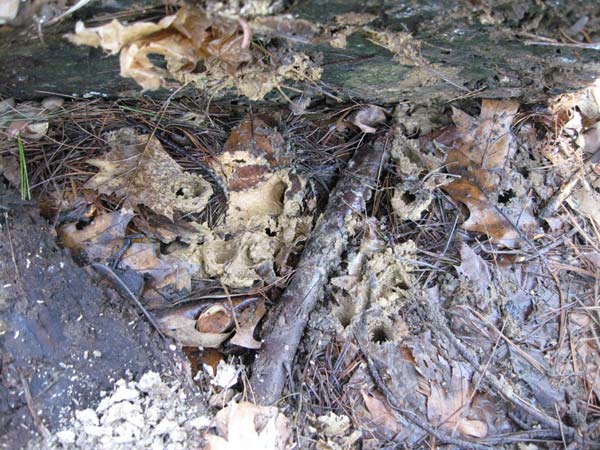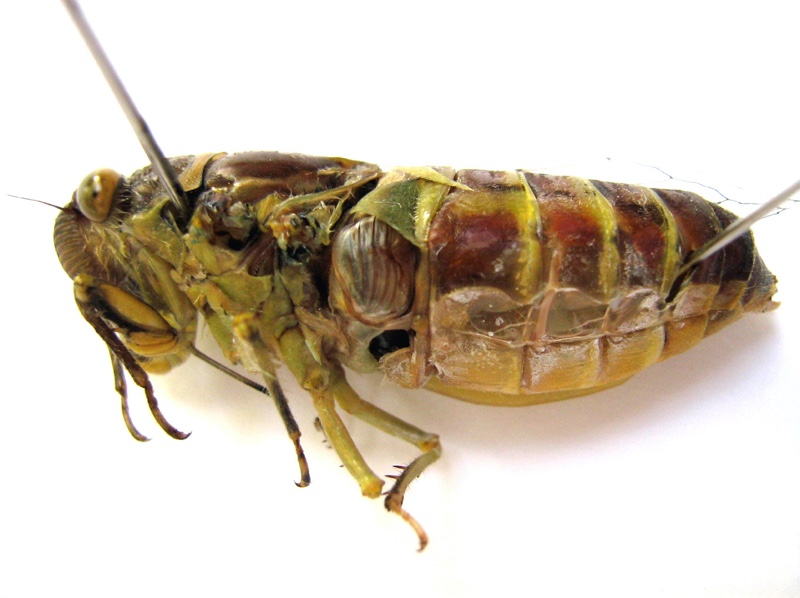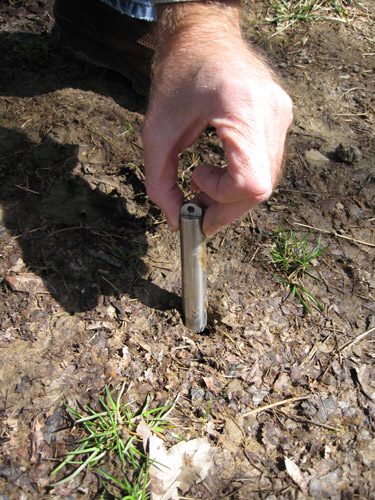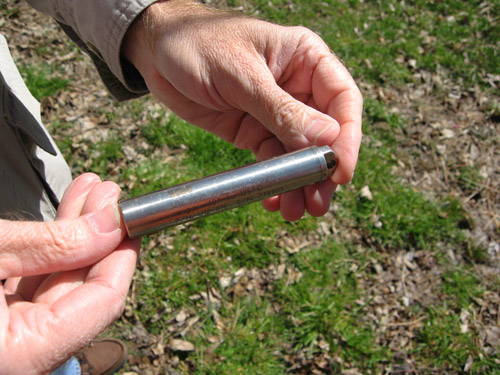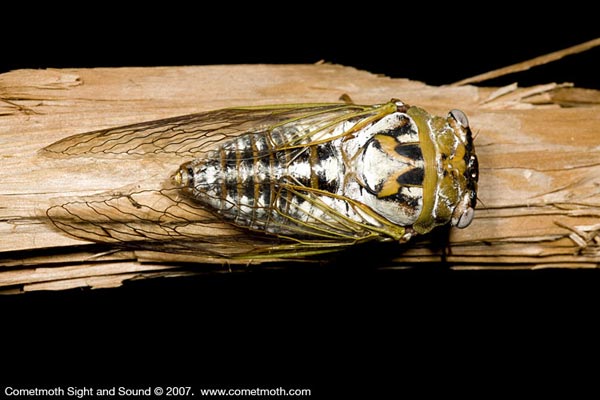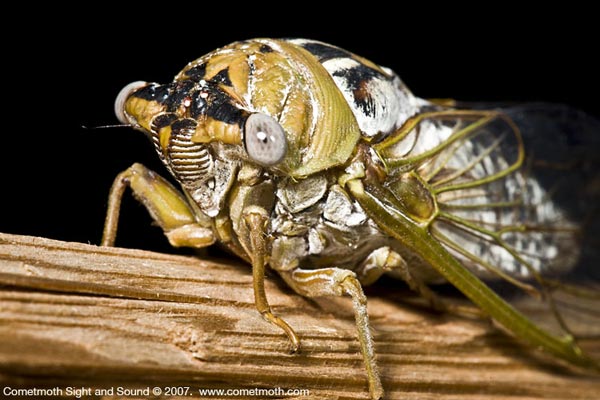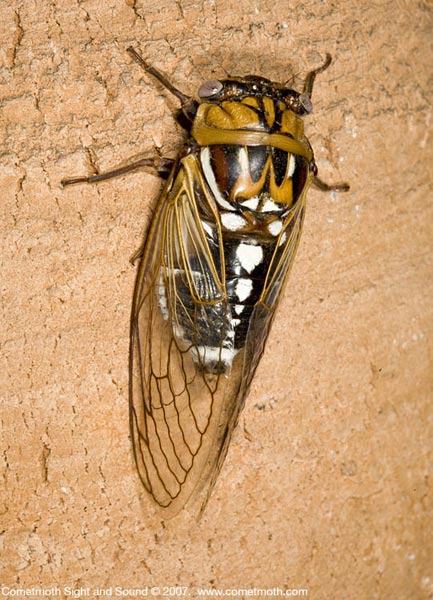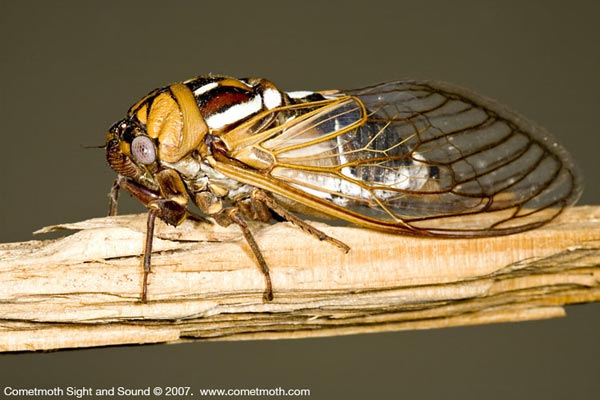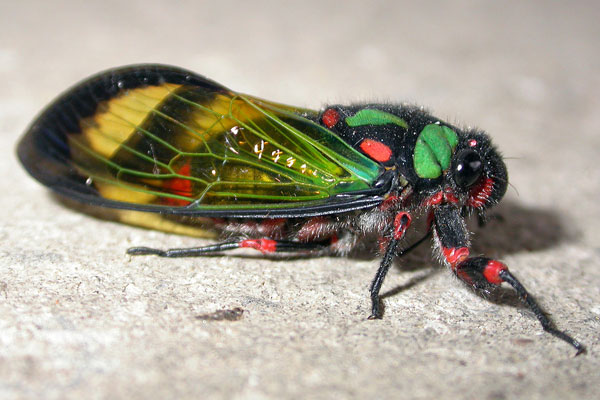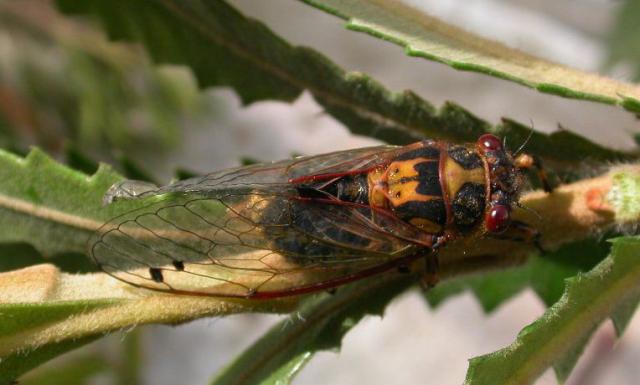Here’s a video news cast from YouTube called Cicadas invade CapeCast. I assume “Cape” refers to Cape Cod. Good information in video form.
Charleston Daily Mail: After 17 years, cicadas set to reappear for a few noisy weeks:
Cicadas will start appearing in southern West Virginia – including much of Kanawha County – starting in May. They have black bodies about an inch and a half long, red beady eyes and a shrill song.
Cape Cod Times: Cicadas stage return after 17 years :
“They’re a phenomenon,” said Miller, the golf course superintendent at The Golf Club at Southport in Mashpee. His job is all about controlling bugs, but Miller sees no harm done by the cicadas who feed on watery tree sugars.
Penn.com: Scientists abuzz about cicadas:
“The amazing thing is that there have not been very good records kept on Brood XIV in Pennsylvania,” said Marten Edwards, an entomologist at Allentown’s Muhlenberg College.
Edwards is among a team of insect experts planning to use Global Positioning Systems to document this year’s emergence. National Geographic is supporting the work through a grant to the University of Connecticut, university biology professor John Cooley said.
Evansville Courier & Press Cicada season Red-eyed insects scheduled to appear in late April:
It may be extra noisy around trees located across Kentucky this year due to Brood XIV of the Periodical Cicada. All of Kentucky, except for the Purchase Areas, should expect some activity from the periodical cicada this year.
Towers: Seasonal cicadas to infiltrate Southern Seminary in May :
Once every 17 years a species of periodical cicada pop out of the ground in numbers too big to be ignored, often at densities of 10,000 to 100,000 per acre.
Home and Garden with John Marra: The Cicada: Nature’s Pruning Machine. Includes video!!!
First of all, how would you like for someone to come to your landscape and prune your trees free of charge? That’s not a chance happening but something that will happen whether or not you agree.
The free pruning service will be in the form of insects. Yep, I said insects, more specifically the 17 Year Periodical Cicada or Locust as some people call them.
Kentucky.com: Cicadas begin cyclic racket:
We’ve had drought and floods, and now, a plague of locusts.
OK, the billions of noisy, red-eyed teenagers emerging soon from the ground beneath your feet aren’t really locusts, although they often are mistakenly called that.
Periodical Cicadas is a classic cicada website that explains most of the information you need to know all in one page, with lots of great photos. It’s one of my favorites.
and
Regardless of the fact that there are not periodical cicadas emerging in the Chicago area this year, the Chicago Cicadas blog is still tracking them.
